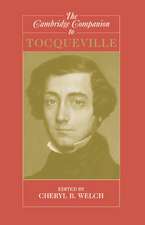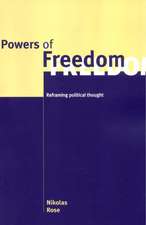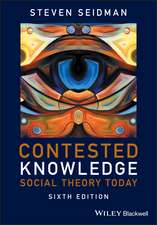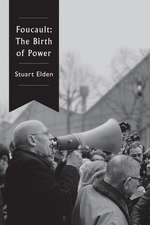The Political Economy of Trust: Institutions, Interests, and Inter-Firm Cooperation in Italy and Germany: Cambridge Studies in Comparative Politics
Autor Henry Farrellen Limba Engleză Paperback – 9 mai 2012
| Toate formatele și edițiile | Preț | Express |
|---|---|---|
| Paperback (1) | 284.78 lei 6-8 săpt. | |
| Cambridge University Press – 9 mai 2012 | 284.78 lei 6-8 săpt. | |
| Hardback (1) | 750.90 lei 6-8 săpt. | |
| Cambridge University Press – 23 aug 2009 | 750.90 lei 6-8 săpt. |
Din seria Cambridge Studies in Comparative Politics
-
 Preț: 179.15 lei
Preț: 179.15 lei -
 Preț: 267.61 lei
Preț: 267.61 lei -
 Preț: 239.36 lei
Preț: 239.36 lei - 9%
 Preț: 594.67 lei
Preț: 594.67 lei -
 Preț: 160.82 lei
Preț: 160.82 lei -
 Preț: 269.58 lei
Preț: 269.58 lei -
 Preț: 264.74 lei
Preț: 264.74 lei -
 Preț: 177.28 lei
Preț: 177.28 lei -
 Preț: 225.70 lei
Preț: 225.70 lei -
 Preț: 164.94 lei
Preț: 164.94 lei -
 Preț: 236.42 lei
Preț: 236.42 lei -
 Preț: 185.64 lei
Preț: 185.64 lei -
 Preț: 233.13 lei
Preț: 233.13 lei -
 Preț: 206.71 lei
Preț: 206.71 lei -
 Preț: 231.82 lei
Preț: 231.82 lei -
 Preț: 206.52 lei
Preț: 206.52 lei -
 Preț: 201.24 lei
Preț: 201.24 lei -
 Preț: 358.37 lei
Preț: 358.37 lei -
 Preț: 203.42 lei
Preț: 203.42 lei -
 Preț: 232.45 lei
Preț: 232.45 lei -
 Preț: 257.82 lei
Preț: 257.82 lei -
 Preț: 191.12 lei
Preț: 191.12 lei -
 Preț: 158.77 lei
Preț: 158.77 lei -
 Preț: 199.05 lei
Preț: 199.05 lei - 11%
 Preț: 553.80 lei
Preț: 553.80 lei - 11%
 Preț: 695.06 lei
Preț: 695.06 lei -
 Preț: 288.80 lei
Preț: 288.80 lei -
 Preț: 262.06 lei
Preț: 262.06 lei - 11%
 Preț: 691.66 lei
Preț: 691.66 lei -
 Preț: 388.29 lei
Preț: 388.29 lei -
 Preț: 288.04 lei
Preț: 288.04 lei -
 Preț: 228.00 lei
Preț: 228.00 lei -
 Preț: 385.28 lei
Preț: 385.28 lei -
 Preț: 312.89 lei
Preț: 312.89 lei -
 Preț: 224.44 lei
Preț: 224.44 lei -
 Preț: 287.07 lei
Preț: 287.07 lei -
 Preț: 251.27 lei
Preț: 251.27 lei -
 Preț: 313.70 lei
Preț: 313.70 lei -
 Preț: 277.38 lei
Preț: 277.38 lei -
 Preț: 423.79 lei
Preț: 423.79 lei - 11%
 Preț: 552.94 lei
Preț: 552.94 lei - 11%
 Preț: 554.43 lei
Preț: 554.43 lei - 14%
 Preț: 783.26 lei
Preț: 783.26 lei
Preț: 284.78 lei
Nou
Puncte Express: 427
Preț estimativ în valută:
54.49€ • 56.89$ • 45.10£
54.49€ • 56.89$ • 45.10£
Carte tipărită la comandă
Livrare economică 05-19 aprilie
Preluare comenzi: 021 569.72.76
Specificații
ISBN-13: 9781107404304
ISBN-10: 1107404304
Pagini: 258
Dimensiuni: 152 x 229 x 15 mm
Greutate: 0.38 kg
Editura: Cambridge University Press
Colecția Cambridge University Press
Seria Cambridge Studies in Comparative Politics
Locul publicării:New York, United States
ISBN-10: 1107404304
Pagini: 258
Dimensiuni: 152 x 229 x 15 mm
Greutate: 0.38 kg
Editura: Cambridge University Press
Colecția Cambridge University Press
Seria Cambridge Studies in Comparative Politics
Locul publicării:New York, United States
Cuprins
Acknowledgments; 1. Introduction; 2. A theory of institutions and trust; 3. Varieties of capitalism and industrial districts; 4. Trust and institutions in industrial districts; 5. Accounting for change in informal institutions; 6. Informal institutions without trust: relations among Mafiosi in Sicily; 7. Conclusions; Bibliography; Index.
Recenzii
“Farrell’s The Political Economy of Trust is a tour de force. His book takes us through the burgeoning literature on social trust, social capital, institutions, and networks. Farrell has done us a service by clearly distinguishing among these terms, carefully carving out a distinct analytical space for each concept, and identifying their respective explanatory purchase. One of his main goals is to show that the concept of trust provides a deeper understanding of cooperation than institutions by themselves. He succeeds brilliantly.
“Farrell’s masterful treatment of the literatures on social capital, culture, and rational choice approaches to institutions provides us with a more complete picture of the causes and consequences of institutions. His case studies of firms in Emilia Romagna, Italy and Baden-Wuerttemberg, Germany, along with his final chapter on the Mafia in Sicily provide the ideal material to illustrate his complex ideas and demonstrate their empirical grounding.”
-James A. Caporaso, University of Washington
“Henry Farrell’s important book is a crucial contribution to the literature on social trust, and will be particularly influential among those seeking to understand the roots of coordinated market arrangements in advanced political economies. Boldly bridging the divide between rational-choice microfoundations and institutionalist macro-theorizing, while also bringing in culturalist perspectives, Farrell shows how trust can be grounded in informal institutions that were created for quite different reasons than the production or sustenance of cooperation. In doing so, he provides a powerful new way of understanding the role of trust in social, political, and economic life.”
-Jacob S. Hacker, Yale University
“Farrell’s masterful treatment of the literatures on social capital, culture, and rational choice approaches to institutions provides us with a more complete picture of the causes and consequences of institutions. His case studies of firms in Emilia Romagna, Italy and Baden-Wuerttemberg, Germany, along with his final chapter on the Mafia in Sicily provide the ideal material to illustrate his complex ideas and demonstrate their empirical grounding.”
-James A. Caporaso, University of Washington
“Henry Farrell’s important book is a crucial contribution to the literature on social trust, and will be particularly influential among those seeking to understand the roots of coordinated market arrangements in advanced political economies. Boldly bridging the divide between rational-choice microfoundations and institutionalist macro-theorizing, while also bringing in culturalist perspectives, Farrell shows how trust can be grounded in informal institutions that were created for quite different reasons than the production or sustenance of cooperation. In doing so, he provides a powerful new way of understanding the role of trust in social, political, and economic life.”
-Jacob S. Hacker, Yale University
Descriere
This book sets out a rationalist theory of how institutions - especially informal institutions - can affect trust without reducing it to fully determine expectations.










